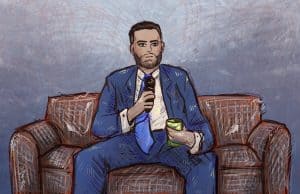‘Cancel culture’ idea is deeply flawed
September 10, 2018
Now that social media is a well-established presence in everyday life, it has become nearly impossible to escape the mistakes of one’s past. We all have to make peace with the fact that we’ll never truly escape our awkward selfies and cringy, drama-filled Facebook statuses from middle school. But for many celebrities, the indelible nature of the internet can lead to more than short-lived embarrassment.
Uninformed statements from years in the past have the power to end both budding and well-established careers. Where in the past only newspaper or tabloid headlines could break the news of a celebrity’s wrongdoings, now all it takes is a little scrolling and dedication.
Several problems arise with this phenomenon. For one, there is a staggering difference between the consequences faced by male and female celebrities. In 2009, Chris Brown beat his then-girlfriend, Rihanna, with intent to kill her. In the 80’s, Mark Wahlberg committed several racially charged acts of violence upon black and Vietnamese people. Both of these men did face some backlash at the time of their crimes, but they are still enjoying fairly illustrious careers. Winona Ryder, on the other hand, was caught shoplifting in 2001 and her career didn’t recover until the 2016 success of Stranger Things. There are countless examples of female musicians with steadily growing fanbases who swiftly turned their backs on them once unsavory tweets posted in high school resurfaced.
Many of the reprehensible actions that cut careers short as of late are less black-and-white, like assault or shoplifting, and have moved into social justice territory. Celebrities get in trouble for casually racist or homophobic remarks. Of course, people should face consequences for their actions. We all have a right to know whether the people we choose to support bear prejudices against minority groups, especially if we are a member of the mentioned group.
However, even the most socially aware of us can admit that we weren’t always in the know. I cringe when I think back on some of the uninformed beliefs I held when I was younger. However, as I’ve grown, I have gained knowledge and better understanding of the world around me, as well as the fact that my words and actions affect others in ways I don’t necessarily intend.
It would be ridiculous if someone tried to use something I said in ninth grade as evidence that I am a horrible person. In the same way, it’s absurd to believe that celebrities—who, after all, are just people with a little more visibility than most—are no better now than they were six years ago.
Of course, one can’t assume that anyone has changed. The passage of time allows the possibility of attaining knowledge and broadening one’s worldview, but many people see nothing wrong with their bigoted views. To hide behind the excuse that “It was a long time ago!” without offering an actual apology is lazy and irresponsible.
Though people will never stop looking into celebrities’ pasts, it’s important to recognize how inefficient and inconsistent cancel culture really is. Rapper XXXTentacion assaulted his cellmate nearly to the point of death and allegedly beat his pregnant girlfriend, and yet continued to have major success on the charts. On the flip side, female singers like Sabrina Claudio and Doja Cat were abandoned by their fans almost instantaneously upon the discovery of their uses of racial and homophobic slurs, respectively, in the past.
Once again, everyone should face consequences for their actions. A gay person who finds out that their favorite singer uses slurs like that would be perfectly justified in feeling uncomfortable continuing to support them. But with the massive disparity in the effectiveness of cancel culture, we simply have to make peace with the fact that it is deeply flawed and not something we can rely on to bring about real change in the entertainment industry.










